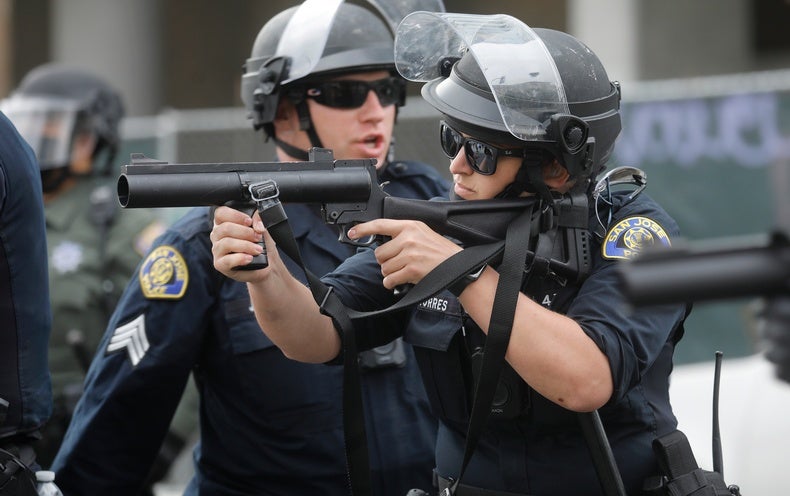The lives of security guards are at risk all the time, especially when confronted by unruly individuals and intruders. It is crucial for them to defend themselves effectively. However, the company that hires the security guard and the guard himself may be held liable if lethal force is used. If possible, it is best to avoid the use of lethal Armi. Retail stores, small businesses, and public facilities are typically protected by security professionals, so firearms aren’t necessary.
How do security guards protect themselves?
Security personnel have many options available to protect themselves without using weapons that can endanger lives.
Pepper Spray
It is a non-lethal option to use pepper spray. To pack a powerful sting, the spray contains a concentrated supply of capsaicin, a chemical derived from chili peppers. Potential offenders are deterred by pepper spray, a lightweight, convenient deterrent.
Pepper spray was first used for self-defense by law enforcement in the United States in 1973. Subduing uncooperative or violent individuals with it can be done safely. Using pepper spray requires the guard to get close enough to the troublemaker to discharge the spray. Pepper spray causes eye pain, a burning sensation, and temporary blindness in anyone who comes into contact with it. Pepper spray can last up to 45 minutes, giving security personnel enough time to contact law enforcement.
Baton
The purpose of batons is to slow down an intruder without killing him. Intruders can be stopped dead in their tracks when the wand is used properly. It is required that all security guards who intend to use a baton be properly trained in its use.
Taser

If you have security guards, a taser would be a good choice. You must have your security guard within 15 feet of the suspect in order to stop him. Until backup arrives, the taser should stop the suspect from leaving and help the security guard. If you decide to equip your security officers with tasers, you will want to make sure that they receive proper training on how to use them.
Why Non-Lethal Weapons Are Beneficial
Your security arsenal should include non-lethal weapons in order to avoid liability lawsuits. You will want to develop a complete strategy with your entire staff in order to ensure that your business is safe. You can learn more by taking a series of training courses. Guard patrol strategies, as well as technology-enhanced guard tours, should be used. Your security guards and patrons must be protected, so don’t leave your staff unprepared.
Security guards can take quality continuing education courses
The National Investigative Training Academy, Inc. offers continuing education courses and pre-licensing courses for anyone interested in becoming a better security guard. The NITA curriculum is state-approved and board-certified. There are no requirements to attend classes other than an Internet connection and an email account.

